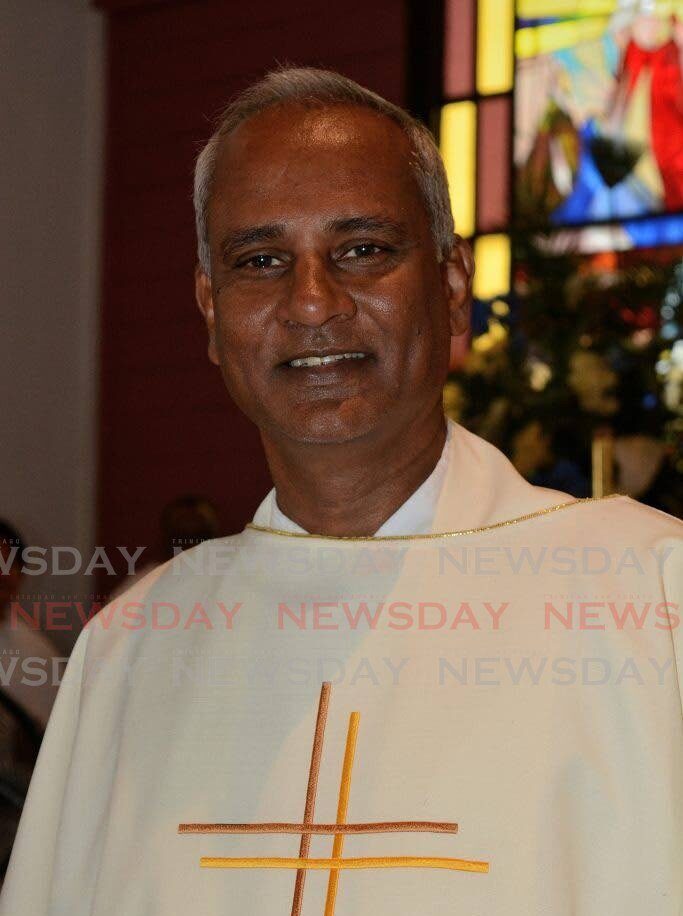Christmas and the science question

FR MARTIN SIRJU
CONTEMPORARY science has challenged the Christian metanarrative and its understanding of redemption. Bishop Robert Barron, the jefe of modern Catholic evangelisation with millions of followers, has noted that among the young the questions that bother them most are those about faith and science.
Where are we as church vis-a-vis the Big Bang theory, insight into galaxies via the Webb telescope, black holes and multiverses? The honest answer is we do not really know; we are just beginning to wrestle with the question and scratch the surface for possible answers. No wonder the science question alienates people from the church.
One thing is we got redemption significantly wrong. In the Catholic creed we read: “For us men and our salvation He came down Heaven.” This is a theologically deficient statement. It leads to an exaggerated humanism and a neglect of earthly concerns. The more authentic strain in Christian theology is Christ came to save the world.
This exaggerated humanism is rooted in Gen 1:28, “Be fruitful and multiply and fill the earth and subdue it,” ie, the earth was given for our welfare; it is there to exploit for our well-being and advancement. Well, quite simply, it is not. We are to work in harmony with it in a mutually beneficial relationship.
When we don’t the net result is climate change among other things, and we, small island developing states (SIDS), are most affected for what industrialised nations have done. Peter is paying for Paul. The irony of Gen 1:28 is that we forget that the earth is prior to us and we depend on it for our sustenance. We bit the hand that fed us. But the science question and planet Earth is being addressed at the moment.
What about the wider cosmos? We are part of the Milky Way with hundreds of billions of stars of which the sun is just one. The Milky Way is just one of hundreds of billions of galaxies and a relatively small one. This gives us an idea of how infinitesimal we are. “A drop in the ocean” is no longer a suitable metaphor to describe the vast cosmos in which we find ourselves.
Christian theology is daunted by this but it is wrong to think it is totally defenceless and that turning our backs on a 2,000-year-old tradition is justified. The hierarchy has been slow on the draw and has not given the faithful up-to-date catechesis. There is an urgent need for a more robust, comprehensive faith formation that takes on the tough science questions.
Christian faith, as I have said, is not defenceless in the face of this. What do I mean? Well, let us look at an often misrepresented text – Jn 1:14. From this text we get centuries of theological writings centred on the human person – more man than woman – because we continue to parrot through the ages “God became man.” Well, the Bible never says that. Or Jn 1:14 would have said God became “anthropos.” It doesn’t say that. It says God became “sarx” – flesh, or better yet, matter.
Matter, therefore, is linked to Christ through his human flesh. Once we say this babe in Bethlehem, the divine has come to us in the flesh, in matter, then redemption is now linked to matter, not only human matter and earth matter but cosmic matter. This insight is generations old dating back to the French Jesuit, Pierre Teilhard de Chardin, who remarked: “The human person is the sum total of 15 billion years of unbroken evolution now thinking about itself.” Incarnation – God assuming flesh in the world – must be seen along these lines.
Demont Lane in his book Keeping Hope Alive mentions several scholars who have been addressing the scientific challenge. Catholic priest Thomas Berry wrote that “we carry the universe in our being just as the universe carries us in its being” and Anglican priest-physicist John Polkinghorne said that “we are all made of the ashes of dead stars,” including Jesus.
My wish then is that we stop saying this nonsense – “Christmas is for children” – and that we recognise that God coming in the flesh has cosmological implications we are only just beginning to discover.
Fr Martin Sirju is the Vicar General of the Port of Spain Archdiocese

Comments
"Christmas and the science question"